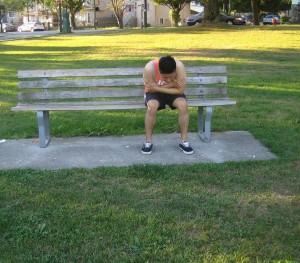Always bear in mind that thoracic spine herniated disc can lead to symptoms that are severe enough to entail surgery. The vertebrae of the spine are cushioned by the discs made out of cartilage that absorb shock. These discs are susceptible especially the effects of the aging process which causes wear and tear on the cartilaginous ring. The deterioration can cause the annulus to bulge and place pressure on the spinal cord.
Pain
The pain is the usual symptom that indicates injury to the thoracic disc, but many individuals with a herniated disc in the thoracic spine will not suffer from any pain at all. Once the herniated disc on the thoracic spine triggers pain, it usually occurs on the back and shoulders as well as radiate up the abdomen and chest wall.
Muscle weakness

The nerves supplying the muscles of the lower limbs go down from the brain via the thoracic spine. If these nerves are impinged or compressed due to a herniated disc, it can affect any of the muscles they supply and the pressure on the spinal column can affect all the muscles below the level where herniation occurs. Loss of muscular strength is usually bilateral or only affects one leg at a time.
Disturbances with gait and balance
Individuals who have nervous systems that were affected by a herniated disc in the thoracic spine might have difficulty walking since the nerve damage affects the mobility of the legs. In case the herniated is severe, it can lead to paralysis of the lower body.
Reflex spasticity
Once a reflex is tested out, the sensory nerves transmit a message to the brain that replies with a motor nerve impulse that triggers abrupt contraction as a response to the sensory stimuli.
If there is a herniated disc in the thoracic spine, it can cause the nerves to become overactive. Once the reflexes react in an overly manner, it results to the spasticity of the leg muscles.
Dysfunction of the bladder and bowel
Fecal or urinary incontinence are also likely to occur if an individual ends up with a herniated disc in the thoracic spine. Take note that this occurs once the spinal cord is compressed or crushed by the protruding disc which results to a condition called as myelopathy.
